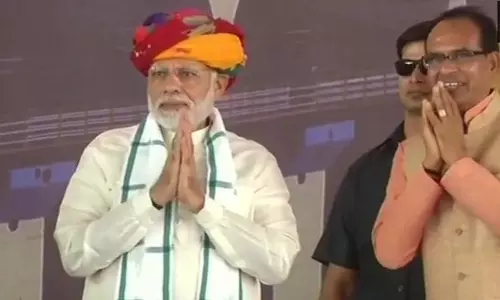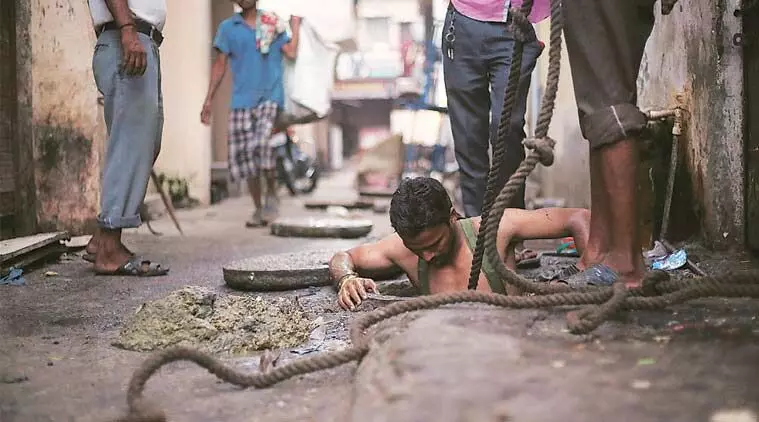
The scavengers in Swachh Bharat
text_fieldsThe other day in the Rajya Sabha, BJP MP Mahesh Poddar asked a question: How many scavengers have died on the job in our country in the last three years? The reply given in writing by Social Justice and Empowerment Minister Virendra Kumar was very strange: No one has been killed because of working as scavengers in the last three years, but 161 people died while cleaning sewers and septic tanks! The answer given to another question by Minister of State for Social Welfare Ramdas Athawale to the House was that only 971 people had died while cleaning sewers and septic tanks since 1993. Were the two ministers' statements in the House factually correct? What government figures show is to the contrary. According to NGOs working in the area, the government is spearheading the spread of lies. For, according to the 2011 census, there are 2.6 million scavengers in the country of which 98% are Dalits. Uttar Pradesh has the highest number of such workers. However, the minister said the other day that only 58,098 people were currently employed in that vocation. According to the Scheduled Caste Economic Survey released in 2015, the Centre has another figure that 1,80,657 households in the country depend on scavenging for their livelihood. According to the Safai Karmachari Andolan, which has been functioning in the field for two decades, more than 3.4 million people are engaged in hazardous cleaning work and struggling in horrible conditions without any human consideration. Of these, 36,176 are engaged in cleaning work equivalent to scavenging in the railways alone under the Centre. Even in Kerala, the agency says, about 17,000 people are employed in this field. Leading national media outlets have reported that the truth is not as the ministers tell, and that between 2019 and 2022, at least 776 people have died while being forced to do scavenging work without adequate safety . Yet if the government is keen to show in official figures that there are no deaths and that human excreta eradication work does not exist, it is a futile attempt to establish that such a thing has disappeared in the country since the ban on scavenging in 2013.
The Centre is guilty of not only the description about those who died during scavenging work, but also recording incorrect data in all official records, thereby making the liberation of the most miserable people in India impossible. The government is interested in making scavengers or those who engage in hazardous cleaning activities. equal to scavenging according to official documents, invisible to the public view of the country. By renaming human excreta eradicators as sanitation workers, it may be possible to establish that there is no more scavenging in India and that the Swachh Bharat campaign is a complete success. But in India, which is dominated by caste and landlord culture, legal protection and government privileges get denied to people of particular castes, such as the Valmiki, Chakliyar and Arunthatjiyar, who have been imposed human excreta cleaning as ancestral vocation. In practice, lakhs of people will have to live a disgraceful life, extracting human feces and dipping in gutters to clean them.
What the Centre has to do for Swachh Bharat to succeed and to eradicate scavenging is not to lie in numbers, but be prepared for a thorough overhaul, from eradicating the inherent caste consciousness of every Indian to urban planning and construction. The nation should be able to view sanitation workers, socially and legally as equal human beings with rights. Waste treatment activities that are carried out without support of machinery should be treated as equally hazardous and disgraceful as scavenging. Strikes that force governments to implement technological development are probably essential in this area. If one sincerely wishes the cleaning workers to be rescued from the miserable life, then the primary requirement is for everyone to be prepared to shed the rotten caste consciousness. In parallel, there is a need to develop the political awareness to pay for and utilise technological advances that value human dignity.
























